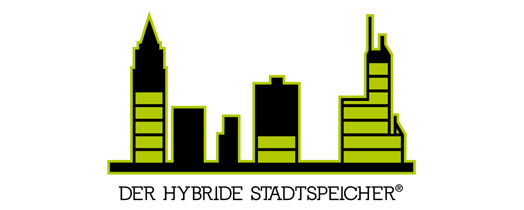
Hybrid energy systems

Efficient energy production by hybrid systems
In the era of rethinking lifestyles in the name of resource conservation supported by rapid technological advancement, Hybrid Energy Systems are experiencing a strong upsurge. Due to the multitude of possible combinations, hybrid energy systems can deliver highly efficient solutions for energy generation and guarantee maximum performance.
This offer targets energy providers, private companies, city administrations, households, mobility providers and mechanical engineering companies.
Benefits of hybrid energy systems
Efficiency
The high-tech networking of different energy sources can guarantee the highest efficiency of energy generation. Due to the combination of central and decentralized storage forms, intelligent and low-loss control of energy consumption can also be achieved.
Significant opportunities for new technologies
The objective of such an energy supply network is to achieve a balance between production and consumption. To this end, the seamless integration of various technologies for generation, storage and consumption of energy, which offer new opportunities for innovative solutions, is necessary.
Hybrid Combination Forms
Hybrid energy systems consist of at least two different energy sources, which complement each other. The possible combinations of conventional and renewable energy resources enable innovative and energy-efficient solutions for cities, districts or individual households.
Sustainability
When combining exclusively renewable sources of energy, such as solar or wind energy, hybrid energy systems can deliver 100% renewable energy with the added benefit of improved flexibly and ability to adapt to demand.
Growing demand
Due to increasing technical progress facilitating emergence of new possibilities and innovations in this area, demand for hybrid energy systems has grown considerably. Cities have demonstrated particular interest in these solutions as they present a means of effective management of supply and demand thus improving energy security.
Modular offer
A hybrid energy system is fully automatic and consists of at least one energy processing plant, a control system and a (short-term) energy storage unit for excessively generated energy. Thanks to the closed-loop system, excessive energy is not lost and consumption can be controlled.

Reference projects
The Fraunhofer project “HYBRIDE STADTSPEICHER” (Hybrid City-Storage), is a collaboration between Fraunhofer UMSICHT (coordination), Fraunhofer ISE, Fraunhofer IOSB-AST and Fraunhofer ISIT. The objective is to take advantage of the enormous potential of cities to store and utilize energy. Cities can use this potential to balance energy supply and demand in the local network. The project covers both electricity and heat generation and aims to integrate renewable energies through central and decentralized electrical storage as well as through bounding of decentralized generators and loads, enabled by additional thermal storage. The challenges for the future of the energy system is to achieve a spatio-temporal balance in the context of strongly fluctuating and dispersed renewable energy production and consumption.
This can be achieved through four complementary technology paths:
Energy storage
In the case of energy storage, small, decentralized battery-based lithium-ion batteries (approx. 1-20 kilowatts) are coupled to larger storage units of approx. 50 kilowatts to 5 megawatts (such as the redox flow technology further developed by Fraunhofer) Photovoltaic (PV) systems.
Network capacity expansion
In terms of conventional network expansion, in addition to the cost-intensive high-voltage direct-current transmission, which is only relevant in the context of long-distance network delivery, regional network capacity expansion focuses on the better use of networks by intelligent regulation and storage.
Controllable consumption
Controllable consumption focuses mainly on decentralized heat pump systems with high-performance thermal storage.
Plannable production
Plannable power generation is facilitated through decentralized heat and power generation plants operated by means of high-capacity thermal storage tanks, which are used instead of conventional heaters.
While nearly all technologies will be deployed (mostly in buildings) in the near future, there is much potential for network operators for utilization of relatively inexpensive storage capacity at city or district level (medium voltage / low voltage, i.e. local power transformer).